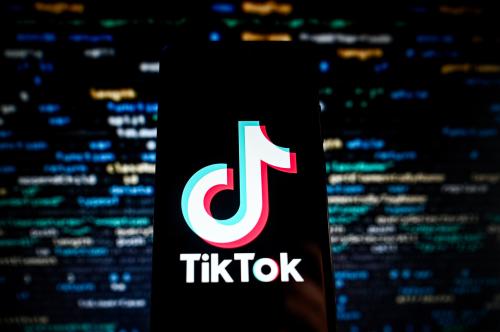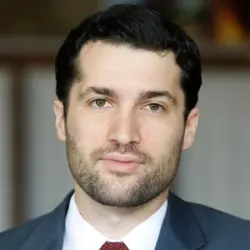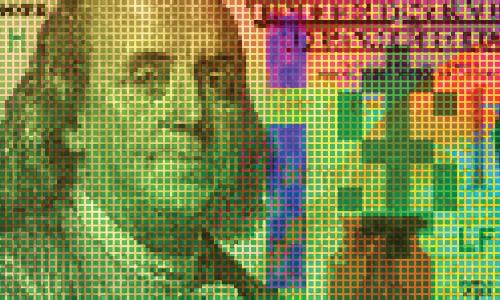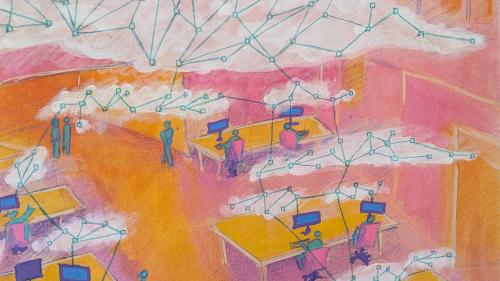For the third time in six months, President Donald J. Trump has announced that the Department of Justice (DOJ) will stand down from enforcing Congress’s TikTok ban. The new order pushes TikTok’s day of reckoning to mid-September—and there’s no reason to expect that deadline won’t slip again if September arrives without a deal for ByteDance, TikTok’s Chinese owner, to sell its crown jewel.
In repeatedly refusing to enforce the TikTok law, Trump has asserted a de facto power to suspend laws he dislikes, treating a statute passed 360–58 in the House of Representatives and 79–18 in the Senate—and upheld by every judge to consider it, including a unanimous Supreme Court—as little more than a suggestion. The longer this situation continues, the clearer it becomes that the real TikTok story is no longer about data security or Chinese influence. It’s about whether the executive branch can openly nullify federal law while America’s most sophisticated corporations choose to play along rather than insist on the rule of law.
The law that should have worked
Congress designed the “Protecting Americans from Foreign Adversary Controlled Applications Act” (PAFACAA) to minimize reliance on executive enforcement. Beginning Jan. 19, 2025—the day before Trump’s inauguration—U.S. app stores and cloud providers faced ruinous civil penalties of $5,000 per American TikTok user (all 170 million of them) if they continued to distribute or host ByteDance-owned TikTok. The incentives were straightforward: either ByteDance divests, or the platform goes dark.
For roughly 12 hours on Jan. 19, the plan worked exactly as intended. Apple and Google pulled the app from their stores. Oracle and Akamai shut off their servers. TikTok voluntarily suspended its U.S. operations, removing access for domestic users and disabling content delivery—effectively flipping the off switch on its American presence.
But that evening, Oracle and Akamai restored TikTok’s U.S. service, apparently on the strength of informal assurances from the Trump campaign that the incoming president would shield them from liability. Once inaugurated, Trump formalized that promise in a 75-day non-enforcement order, which, as I wrote at the time, was “transparently an attempt to undermine PAFACAA, rather than implement it in good faith.” The non-enforcement order even directed Attorney General Pam Bondi to send a letter to TikTok’s service providers assuring them that not only would the Trump administration not punish them for doing business with TikTok, but that they were not liable for violating the law, even in the two days before the executive order was issued. While PAFACAA permits the president to announce a single 90-day extension, this is contingent on certification to Congress that an actual divestiture is underway. Rather than sign what would amount to a false certification, Trump has offered something cheaper: repeated unilateral promises that the DOJ will sit on its hands and not enforce legislation passed with large majorities by Congress.
After Bondi sent the letter in February, Apple and Google—who had until then complied with the law—restored TikTok to their app stores. Since then, TikTok has not only been alive but also thriving, existing in a peculiar superposition of legal states: simultaneously banned by statute and booming by presidential decree. Call it Schrödinger’s TikTok.
Meanwhile, little progress has been made on divestment or ownership changes. While American buyers abound, the real barrier is China. Beijing has little incentive to approve a sale if it believes Trump will never enforce the ban. The broader U.S.-China trade war has only made negotiations more fraught as both sides benefit from Trump’s directive.
A trillion-dollar gamble
Although TikTok’s users experience business as usual, profound risks lurk beneath the surface—especially for the companies doing business with TikTok. They face potential liability approaching a trillion dollars for violating the statute.
Some companies may try to shrug off this exposure as speculative. Google’s lawyers have argued that the risk is “hypothetical,” but of course, all legal exposure is hypothetical until the government comes calling. One mystery that continues to surround the companies’ willingness to violate the law is whether their corporate counsel and high-priced outside lawyers convinced them it was safe, or whether the C-suite overruled legal caution.
Companies may hope that if Trump or a future administration reverses course on non-enforcement, they can invoke “entrapment by estoppel”—a doctrine sometimes used to shield defendants who reasonably rely on official advice. But courts apply this doctrine narrowly to unsophisticated actors confronting ambiguous statutes, not to Fortune 100 companies advised by elite counsel.
As Akamai candidly admitted in a February 10-K filing, after Attorney General Pam Bondi sent a letter to TikTok service providers on Trump’s orders, “there is no assurance that we will not be exposed to liability” if political winds shift. That sentence should chill any general counsel who still believes presidential indulgence substitutes for statutory compliance.
The damage done
By acquiescing to Trump’s promise of non-enforcement, Big Tech has effectively granted the White House enormous leverage across countless unrelated issues. At any moment, Trump could reverse course—a latent threat that gives the president a cudgel more fearsome than any antitrust suit or consumer protection investigation.
Meanwhile, Congress, while it expresses bipartisan concern about Chinese data harvesting despite minimal public evidence supporting that claim, shows no appetite to reassert its will now that popular influencers and campaign donors have mobilized on TikTok’s behalf. The courts are unlikely to force the issue because, as the Supreme Court recently reiterated, private plaintiffs generally cannot demand someone else’s prosecution.
The result is deeply damaging on multiple fronts. National security hawks (and TikTok’s users) lose the chance to force a sale to an owner not controlled by an adversary nation interested in espionage and disinformation. Corporations operate under a Sword of Damocles in every interaction with the White House. Shareholders face the risk of sudden, catastrophic losses if enforcement resumes. And anyone who cares about the rule of law must witness statutory text and Supreme Court opinions being overwritten by unilateral executive power.
The TikTok saga reveals a troubling truth: when the executive branch decides to ignore the law, and when corporate America decides to go along, the carefully constructed checks and balances of our system prove surprisingly fragile.
-
Acknowledgements and disclosures
Google is a general, unrestricted donor to the Brookings Institution. The findings, interpretations, and conclusions posted in this piece are solely those of the authors and are not influenced by any donation.
The Brookings Institution is committed to quality, independence, and impact.
We are supported by a diverse array of funders. In line with our values and policies, each Brookings publication represents the sole views of its author(s).








Commentary
The TikTok ban that wasn’t
June 20, 2025